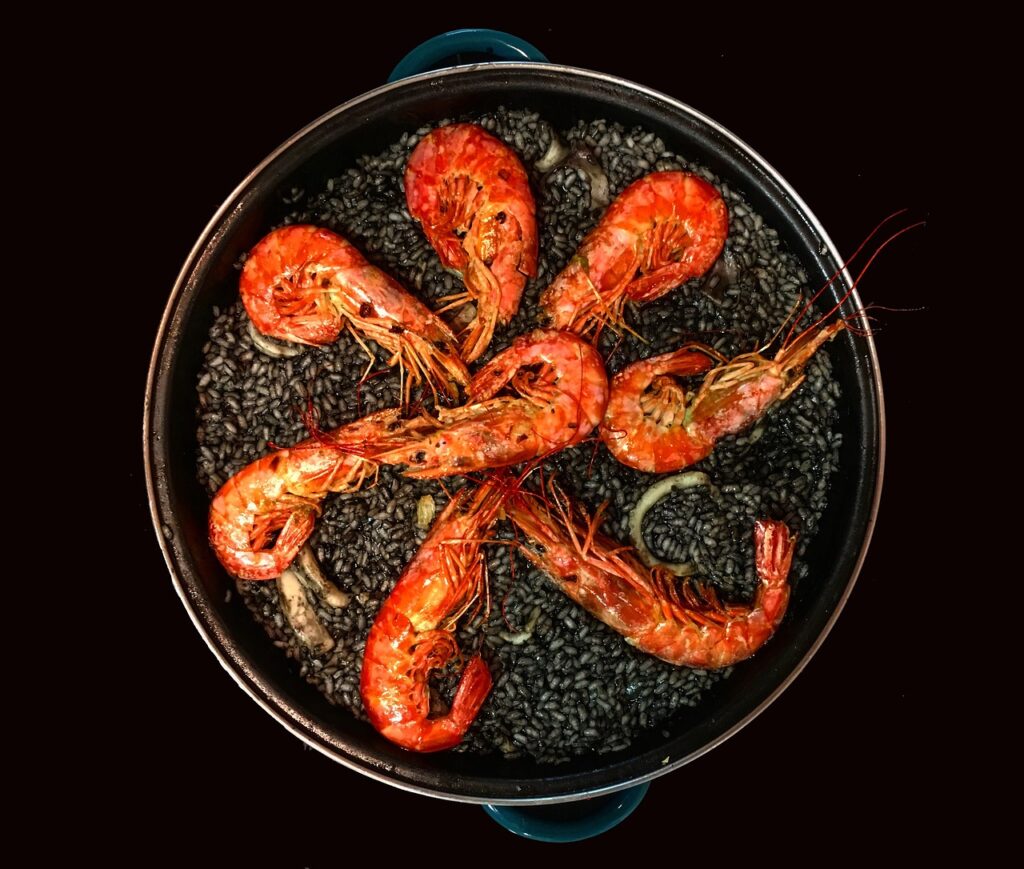Unveiling the Health Benefits of the Spanish Diet
Introduction: The Spanish diet, deeply rooted in Mediterranean culinary traditions, has garnered attention for its health-promoting properties and flavorful, diverse ingredients. With a foundation built on fresh produce, seafood, olive oil, and vibrant spices, the Spanish diet offers a holistic approach to nutrition that is supported by scientific research. This review aims to explore recent studies, unearth intriguing insights, and elucidate the key components that contribute to the nutritional excellence of the Spanish diet.

Key Components of the Spanish Diet:
- Mediterranean Diet Framework: The Spanish diet epitomizes the Mediterranean dietary pattern, characterized by an abundance of plant-based foods, including fruits, vegetables, whole grains, legumes, nuts, and seeds. Numerous studies have underscored the health benefits of adhering to a Mediterranean-style diet, including reduced risk of cardiovascular disease, stroke, and metabolic disorders. Embracing this dietary framework promotes longevity, enhances cardiometabolic health, and mitigates inflammation.
- Olive Oil: Integral to Spanish cuisine is the consumption of olive oil, particularly extra virgin olive oil (EVOO), which serves as a primary source of fat. EVOO is renowned for its high content of monounsaturated fatty acids (MUFA) and potent antioxidants, such as polyphenols and tocopherols. Clinical trials have demonstrated the cardioprotective effects of EVOO, including improvements in lipid profiles, endothelial function, and inflammatory markers. Incorporating EVOO into the Spanish diet confers both culinary excellence and health benefits.

- Abundance of Seafood: Spanning a diverse coastline, Spain boasts an abundant array of seafood, including fish, shellfish, and mollusks, which feature prominently in the traditional diet. Seafood is a rich source of omega-3 fatty acids, essential nutrients that play a crucial role in cardiovascular health, brain function, and inflammatory modulation. Epidemiological studies have associated regular seafood consumption with reduced risk of coronary heart disease, stroke, and age-related cognitive decline, highlighting its importance in the Spanish diet.
- Fresh Produce and Culinary Diversity: The Spanish diet celebrates the seasonal bounty of fresh fruits and vegetables, incorporating a rainbow of colors and flavors into daily meals. The Mediterranean emphasis on plant-based foods provides an array of vitamins, minerals, phytonutrients, and dietary fiber, contributing to overall health and well-being. Moreover, the culinary diversity of Spanish cuisine, influenced by regional variations and cultural traditions, enriches the dining experience and encourages dietary adherence.
- Legumes and Pulses: Legumes, including beans, lentils, and chickpeas, hold a prominent place in Spanish cuisine, offering a versatile source of plant-based protein, fiber, and micronutrients. Consumption of legumes has been linked to numerous health benefits, such as improved glycemic control, weight management, and reduced risk of chronic diseases, including type 2 diabetes and colorectal cancer. Incorporating legumes into traditional Spanish dishes enhances nutritional quality and promotes satiety.
- Wine Culture and Moderation: Spain’s wine culture, characterized by moderate consumption of red wine, reflects a longstanding tradition intertwined with social gatherings and gastronomic experiences. Red wine contains bioactive compounds, such as resveratrol and polyphenols, which exhibit antioxidant, anti-inflammatory, and cardioprotective properties. Epidemiological studies suggest that moderate wine intake, when consumed as part of a balanced diet, may confer cardiovascular benefits and contribute to overall well-being.
- Culinary Heritage and Lifestyle Factors: Beyond its nutritional components, the Spanish diet embodies cultural heritage, culinary craftsmanship, and lifestyle practices that promote holistic wellness. The tradition of leisurely dining, shared meals with family and friends, and appreciation for seasonal ingredients fosters a sense of community, emotional well-being, and enjoyment of food. The Mediterranean lifestyle emphasizes mindful eating, culinary creativity, and physical activity, reinforcing the interconnectedness of diet and health.
The Spanish diet stands as a shining example of culinary excellence and nutritional wisdom, underpinned by the principles of the Mediterranean lifestyle and supported by scientific evidence. By embracing a plant-centric diet rich in olive oil, seafood, fresh produce, and legumes, while savoring the cultural heritage of wine and communal dining, individuals can cultivate health, longevity, and gastronomic delight.


